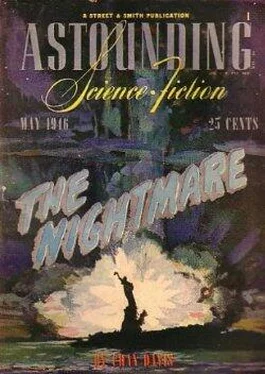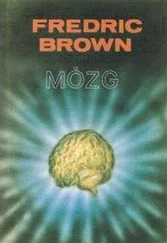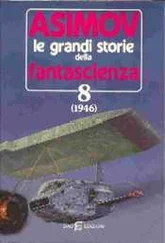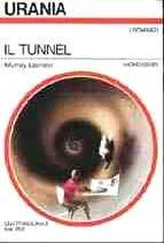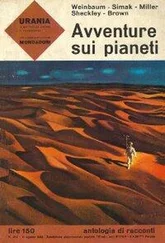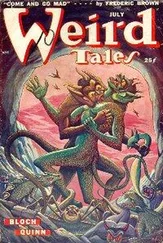Fredric Brown - Placet Is a Crazy Place
Здесь есть возможность читать онлайн «Fredric Brown - Placet Is a Crazy Place» весь текст электронной книги совершенно бесплатно (целиком полную версию без сокращений). В некоторых случаях можно слушать аудио, скачать через торрент в формате fb2 и присутствует краткое содержание. Год выпуска: 1946, Издательство: Street & Smith Publications, Inc., Жанр: Космическая фантастика, на английском языке. Описание произведения, (предисловие) а так же отзывы посетителей доступны на портале библиотеки ЛибКат.
- Название:Placet Is a Crazy Place
- Автор:
- Издательство:Street & Smith Publications, Inc.
- Жанр:
- Год:1946
- ISBN:нет данных
- Рейтинг книги:5 / 5. Голосов: 1
-
Избранное:Добавить в избранное
- Отзывы:
-
Ваша оценка:
- 100
- 1
- 2
- 3
- 4
- 5
Placet Is a Crazy Place: краткое содержание, описание и аннотация
Предлагаем к чтению аннотацию, описание, краткое содержание или предисловие (зависит от того, что написал сам автор книги «Placet Is a Crazy Place»). Если вы не нашли необходимую информацию о книге — напишите в комментариях, мы постараемся отыскать её.
Placet Is a Crazy Place — читать онлайн бесплатно полную книгу (весь текст) целиком
Ниже представлен текст книги, разбитый по страницам. Система сохранения места последней прочитанной страницы, позволяет с удобством читать онлайн бесплатно книгу «Placet Is a Crazy Place», без необходимости каждый раз заново искать на чём Вы остановились. Поставьте закладку, и сможете в любой момент перейти на страницу, на которой закончили чтение.
Интервал:
Закладка:
Placet Is a Crazy Place
by Fredric Brown
Even when you’re used to it, it gets you down sometimes. Like that morning—if you can call it a morning. Really, it was night. But we go by Earth time on Placet because Placet time would be as screwy as everything else on that goofy planet. I mean, you’d have a six-hour day and then a two-hour night and then a fifteen-hour day and a one-hour night and—well, you just couldn’t keep time on a planet that does a figure-eight orbit around two dissimilar suns, going like a bat out of hell around and between them, and the suns going around each other so fast and so comparatively close that Earth astronomers thought it was only one sun until the Blakeslee expedition landed here twenty years ago.
You see, the rotation of Placet isn’t any even fraction of the period of its orbit and there’s the Blakeslee Field in the middle between the suns—a field in which light rays slow down to a crawl and get left behind and if you’ve not read the Blakeslee reports on Placet, hold on to something, while I tell you this: Placet is the only known planet that can eclipse itself twice at the same time, run headlong into itself every forty hours, and then chase itself out of sight.
I don’t blame you.
I didn’t believe it either, and it scared me stiff the first time I stood on Placet and sate Placet coming head-on to run into us. And yet I’d read the Blakeslee reports and knew what was really happening, and why. It’s rather like those early movies when the camera was set up in front of a train and the audience saw the locomotive heading right toward them and would feel an impulse to run even though they knew the locomotive wasn’t really there.
But I started to say, like that morning. I was sitting at my desk, the top of which was covered with grass. My feet were—or seemed to be—resting on a sheet of rippling water. But it wasn’t wet.
On top of the grass of my desk lay a pink flowerpot, into which, nose first, stuck a bright green Saturnian lizard. That—reason and not my eyesight told me—was my pen and inkwell. Also an embroidered sampler that said “God Bless Our Home” in neat cross-stitching. It actually was a message from Earth Center which had just come in on the radiotype. I didn’t know what it said because I’d come into my office after the B. F. effect had started. I didn’t think it really said “God Bless Our Home” because it seemed to. And just then I was mad, I was fed up, and I didn’t care a holler what it actually did say.
You see—maybe I’d better explain—the Blakeslee Field effect occurs when Placet is in midposition between Argyle I and Argyle II, the two suns it figure-eights around. There’s a scientific explanation of it, but it must be expressed in formulas, not in words. It boils down to this: Argyle I is terrene matter and Argyle II is contraterrene, or negative matter. Halfway between them—over a considerable stretch of territory—is a field in which light rays are slowed down, way down. They move at about the speed of sound. The result is that if something is moving faster than sound—as Placet itself does—you can still see it coming after it’s passed you. It takes the visual image of Placet twenty-six hours to get through the field. By that time, Placet has rounded one of its suns and meets its own image on the way back. In midfield, there’s an image coming and an image going, and it eclipses itself twice, occulting both suns at the same time. A little farther on, it runs into itself coming from the opposite direction—and scares you stiff if you’re watching, even if you know it’s not really happening.
Let me explain it this way before you get dizzy. Say an old-fashioned locomotive is coming toward you, only at a speed much faster than sound. A mile away, it whistles. It passes you and then you hear the whistle, coming from the point a mile back where the locomotive isn’t any more. That’s the auditory effect of an object traveling faster than sound; what I’ve just described is the visual effect of an object traveling—in a figure-eight orbit—faster than its own visual image.
That isn’t the worst of it; you can stay indoors and avoid the eclipsing and the head-on collisions, but you can’t avoid the physio-psychological effect of the Blakeslee Field.
And that, the physio-psychological effect, is something else again. The field does something to the optic nerve centers, or to the part of the brain to which the optic nerves connect, something similar to the effect of certain drugs. You have… you can’t exactly call them hallucinations, because you don’t ordinarily see things that aren’t there, but you get an illusory picture of what is there.
I knew perfectly well that I was sitting at a desk the top of which was glass, and not grass; that the floor under my feet was ordinary plastiplate and not a sheet of rippling water; that the objects on my desk were not a pink flowerpot with a Saturnian lizard sticking in it, but an antique twentieth century inkwell and pen—and that the “God Bless Our Home” sampler was a radiotype message on ordinary radiotype paper. I could verify any of those things by my sense of touch, which the Blakeslee Field doesn’t affect.
You can close your eyes, of course, but you don’t—because even at the height of the effect, your eyesight gives you the relative size and distance of things and if you stay in familiar territory your memory and your reason tell you what they are.
So when the door opened and a two-headed monster walked in, I knew it was Reagan. Reagan isn’t a two-headed monster, but I could recognize the sound of his walk.
I said, “Yes, Reagan?”
The two-headed monster said, “Chief, the machine shop is wobbling. We may have to break the rule not to do any work in midperiods.”
“Birds?” I asked.
Both of his heads nodded. “The underground part of those walls must he like sieves from the birds flying through ’em, and we’d better pour concrete quick. Do you think those new alloy reinforcing bars the Ark ’ll bring will stop them?”
“Sure,” I lied. Forgetting the field, I turned to look at the clock, but there was a funeral wreath of white lilies on the wall where the clock should have been. You can’t tell time from a funeral wreath. I said, “I was hoping we wouldn’t have to reinforce those walls till we had the bars to sink in them. The Ark ’ s about due; they’re probably hovering outside right now waiting for us to come out of the field. You think we could wait till—”
There was a crash.
“Yeah, we can wait,” Reagan said. “There went the machine shop, so there’s no hurry at all.”
“Nobody was in there?”
“Nope, but I’ll make sure.” He ran out.
That’s what life on Placet is like. I’ve had enough of it: I’d had too much of it. I made up my mind while Reagan was gone.
When he came back, he was a bright blue articulated skeleton.
He said, “O.K., chief. Nobody was inside.”
“Any of the machines badly smashed?”
He laughed. “Can you look at a rubber beach horse with purple polka dots and tell whether it’s an intact lathe or a busted one? Say, chief, you know what you look like?”
I said, “If you tell me, you’re fired.”
I don’t know whether I was kidding or not; I was plenty on edge. I opened the drawer of my desk and put the “God Bless Our Home” sampler in it and slammed the drawer shut. I was fed up. Placet is a crazy place and if you stay there long enough you go crazy yourself. One out of ten of Earth Center’s Placet employees has to go back to Earth for psychopathic treatment after a year or two on Placet. And I’d been there three years, almost. My contract was up. I made my mind up, too.
Читать дальшеИнтервал:
Закладка:
Похожие книги на «Placet Is a Crazy Place»
Представляем Вашему вниманию похожие книги на «Placet Is a Crazy Place» списком для выбора. Мы отобрали схожую по названию и смыслу литературу в надежде предоставить читателям больше вариантов отыскать новые, интересные, ещё непрочитанные произведения.
Обсуждение, отзывы о книге «Placet Is a Crazy Place» и просто собственные мнения читателей. Оставьте ваши комментарии, напишите, что Вы думаете о произведении, его смысле или главных героях. Укажите что конкретно понравилось, а что нет, и почему Вы так считаете.
